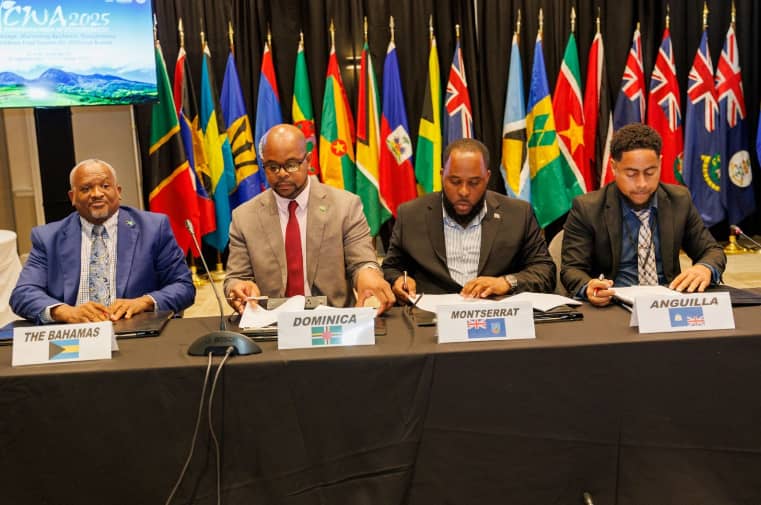Four Caribbean Nations join CRFM in historic Fisheries Governance Move
Anguilla, The Bahamas, Dominica, and Montserrat sign the Caribbean Regional Fisheries Mechanism agreement, expanding its membership to 17 countries.
8th of October 2025

Caribbean: In a huge step for regional fisheries governance, four Caribbean nations - Anguilla, The Bahamas, Dominica, and Montserrat - have signed the Agreement Establishing the Caribbean Regional Fisheries Mechanism (CRFM). The signing was simultaneous for all four during the Sixteen Special Issue of the CRFM Ministerial Council which was a part of Caribbean Week of Agriculture 2025 hosted in St Kitts and Nevis.
The CRFM is based in Belize City which is also the home base of the CARICOM institution. It has been in operation since 2003 and introduced several coordinated efforts to manage and develop the region’s marine and fishery resources in a sustainable way. With the recent additions to its membership, the organization now has 17 Member States which reinforces its position as the primary advocate for the Caribbean in issues related to fishery management.
Delegates present at the signing ceremony
- Kyle Hodge, Minister for Economic Development, Industry, Commerce, Lands, Planning, Water and Natural Resources (Anguilla)
- Montez Williams, Minister in charge, Ministry of Agriculture and Marine Resources (The Bahamas) Deputy Secretary
- Roland Royer, Minister of Agriculture, Fisheries, Blue and Green Economy in Dominica
- John Patrick Osborne, Minister of Agriculture, Lands, Housing, Environment, Youth Affairs, and Sports (Montserrat)
Key policies adopted by CRFM
The Executive Director of the CRFM Secretariat, Dr Marc Williams, described this as a very positive and uniting step for Caribbean fisheries governance. He said that the CRFM’s strength is in its governance structure, noting that resource partners evaluate institutional accountability before they provide support.
- The Caribbean Community Common Fisheries Policy (CCCFP), which allows participating States to jointly conduct the scientific studies and research required to establish the status of the fish stocks, set out available opportunities for fishing, and craft rational strategies for harvesting and fisheries management designed to achieve maximum sustainable use of the resources and to conserve the ecosystems.
- The Personal Data Protection Policy, which makes it possible to confirm that the roles and responsibilities of employees of the CRFM Secretariat (in relation to the protection of personal data) are well-defined, well-understood, and adhered to by all employees, and which offers procedural information on how the CRFM Secretariat and its governing bodies will implement the Policy.
- The Anti-Bribery and Anti-Corruption Policy, a source of guidance and information for persons employed in the CRFM Secretariat and which enables them to identify and respond to bribery and corruption, and informs them of their roles.
- The Whistleblower Policy is designed to afford a broad framework that not only guards whistleblowers against retaliation but also promotes a culture at the CRFM that honors ethical conduct and the reporting of facts crucial to the short-term and long-term success and welfare of the organization.
Latest
- CrazyMess Wet & Dutty to Feature Bouyon Madness at Mas Dominik’s Carnival Monday 2026
-
St Kitts welcomes Oceania Nautica on its inaugural visit -
PM Roosevelt Skerrit meets beekeepers and pepper producers, plans modern processing facility to boost agriculture -
St Kitts and Nevis Cabinet celebrates History and Heritage Month in Traditional Afro-Caribbean Attire -
Dominica gears up for Bouyon Day as part of Mas Dominik 2026
Related Articles

9th of October 2024

27th of September 2024

24th of July 2024


8th of February 2024

26th of October 2023

15th of March 2022

